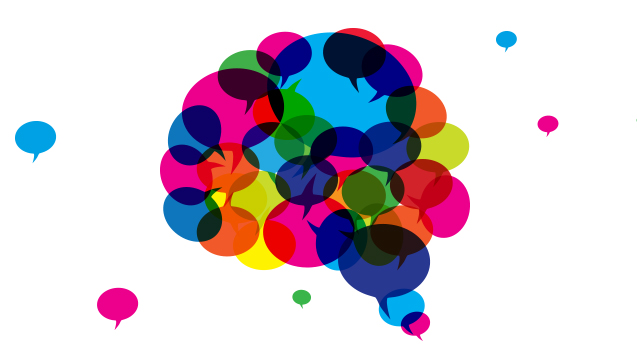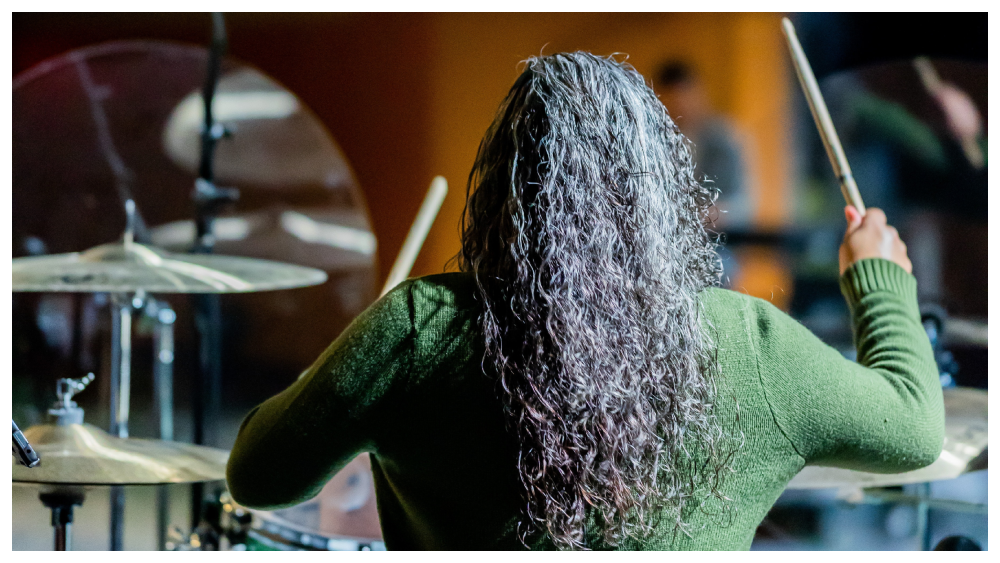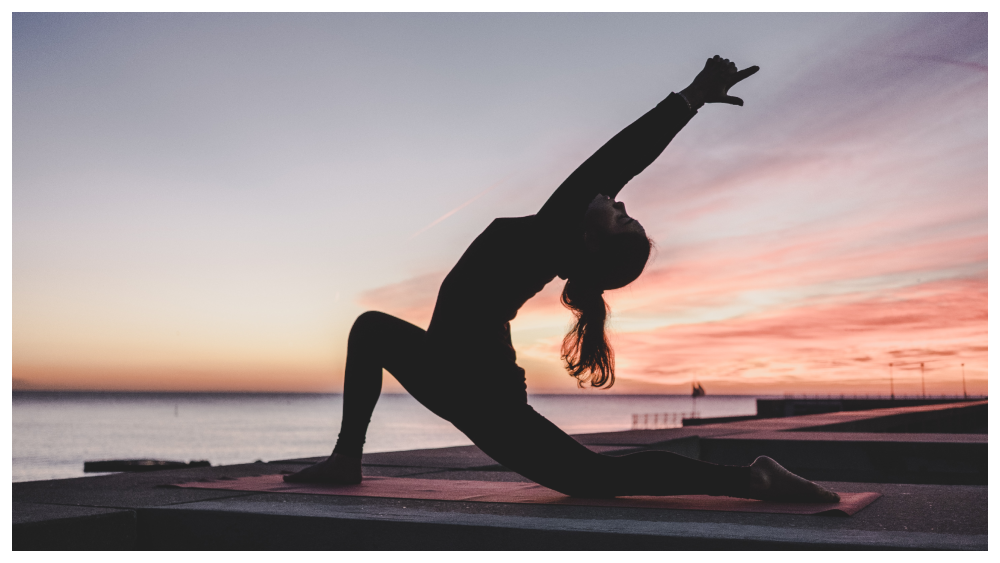Dr Claire Renfrew is a music psychologist who has hands-on experience working with songwriters, composers, performers and musicians across the industry. Here, she reveals some of her key findings and offers vital coping mechanisms for creatives…
Looking back on 2017, it’s been a watershed year for our understanding and acceptance of mental health issues across the music industry. Artists including Frank Carter, Stormzy and Years & Years have spoken openly about the problems they’ve faced, helping push this subject further up the agenda.
Elsewhere, Help Musicians UK’s ground-breaking Can Music Make You Sick? report, which was published in October, has brought real empirical insight to the table, quantifying just how much creatives can suffer for their art.
In the paper, researchers Sally-Anne Gross and Dr George Musgrove, from Westminster University, found that 71 percent of the 2,200-plus musicians they interviewed across the genre spectrum suffer from high levels of anxiety – three times higher than among the general population – while 69 percent report they have experienced depression.
Add to this a plethora of previous studies, which have noted that artists suffer frequently from multiple physical and psychological health issues such as hearing disorders, occupational stress, drug and alcohol abuse, musculoskeletal disorders, fear of potential injury or disability, stress and pain – and we might have an epidemic on our hands.
Worryingly, this unhealthy cocktail of complaints may be prevalent throughout a musician’s entire life due to their enduring commitment to their vocation, yet many receive little or no tailored health support.
The nature of the beast
Music creators often find it difficult to strike a healthy work/life balance because of the constant 'always-on' nature of the music industry. Many have revealed in confidential sessions how they are unable to ‘switch off’, and struggle to distance themselves from their day job. For example, they often feel they are unable to watch and enjoy performances as passive listeners because they can’t stop viewing the show through a professional lens.
It’s often a symptom of the huge weight musicians place on their ability to perform and create. A far-reaching International Conference of Symphony and Opera Musicians (ICSOM) survey in 2015 quantified the fear musicians can feel if they lose their musical skills, with many revealing they rely on their profession for ‘much of their identity’.
Past studies have also revealed the contrasting experiences musicians may encounter, such as physical feelings of pain with pleasurable emotions such as passion. Many say they can continue through the pain because they are getting a psychological kick from creating music.
Often, the musician has been training from a young age – it’s a lifelong vocation that comes at the cost of neglecting ‘the self’. In all genres, the focus is on the music and not the self.
Jazz trumpeter, band leader and educator Kim Macari says: ‘Another serious challenge is creative wellbeing. We express ourselves professionally, which is an exceptional position to be in… but it can exhaust and deplete you.
‘I was ill last year and received treatment for Post-Traumatic Stress Disorder [PTSD], and I learned so much about the importance of self-care in our profession. In our society, we tend to wear exhaustion and busy schedules like badges of honour. But what I realised is that my creative output is vastly improved if I take care of myself well.’
Thank you for the music
You may ask yourself why musicians, artists, composers and songwriters continue, despite the personal and professional challenges they encounter? Many say it’s the positive physical sensations, emotional connections and personal development they get which keeps them going.
The emotional attachment and love of being a musician, writer or composer is often one of the most important reasons to persevere within the industry, as music has such a prominent and crucial place within their lives – and also within the lives of many listeners and audiences.
Additionally, playing and creating music is recognised as a fundamental human construct - a fulfilling core psychological need. And, while these emotional connections felt by musicians towards their career can’t be ignored, the wider music community must work together on solutions to help them survive and thrive. Here are just a few:
Realistic expectations
Previous research has outlined how music creators are often unprepared for the physical and psychological demands of the profession. It’s essential to prepare individuals for these demands and give them a transparent view of what’s expected of them to succeed within the industry.
Mentoring and educational schemes can help tackle this issue, giving individuals access to online forums and promoting a community in which music creators can share their experiences both positive and negative, and ensure they do not encounter issues alone.
Know your rights
Musicians often mask their injuries or unwellness because they don’t want to be perceived as injured: they feel this could affect their reputation and employment prospects.
In addition, music creators often don’t take holidays as they want to be seen as ‘always on’ and readily available. But it’s important to know what holidays you are due and take them. If you are freelance, create your own holiday allowance and stick to it.
Artists should know their rights. Speak to the Musicians’ Union, which can give you further advice on what help is available.
Care and communication
Charities including PRS for Music Members Benevolent Fund, Mind, Help Musicians UK and Music Support UK provide services to advise and educate musicians on mental health issues they may be experiencing. Self-awareness and self-care are essential – talk about your experiences.
Maintain balance
Previous reports have shown that musicians neglect stress management. They experience a lack of physical autonomy and frequently side line recreational activity such as exercise over musical practice and creation.
Also, many musicians feel that career achievement and success may come at the cost of their own health and wellbeing. But it’s important to try not to link over-working with success, and attempt to maintain a healthy work/life balance. Make time for yourself – it’s important to switch off.
Institutional support
Professional music organisations and educators must revisit their structures to ensure a stronger focus on teaching individuals about self-care within the music profession. The importance of having awareness of a sense of self and how to identify personal stress must be taught in training institutions and in all music organisations, amateur and professional.
Coping mechanisms
It’s really important that music creators are educated in positive coping strategies such as breathing techniques, self-reflection, imagery and mock performance practice. They are often woefully unprepared for the psychological and physical demands of the profession, and they need to cultivate a sense of self-control over their performances.
A sense of emotional regulation, as well as mindfulness, is also vital to musicians, helping them tackle issues such as performance anxiety. Musicians, writers and composers often express very personal emotions in their music and they should be educated on how to evaluate the impact this may have on them.
Looking back on 2017, it’s been a watershed year for our understanding and acceptance of mental health issues across the music industry. Artists including Frank Carter, Stormzy and Years & Years have spoken openly about the problems they’ve faced, helping push this subject further up the agenda.
Elsewhere, Help Musicians UK’s ground-breaking Can Music Make You Sick? report, which was published in October, has brought real empirical insight to the table, quantifying just how much creatives can suffer for their art.
In the paper, researchers Sally-Anne Gross and Dr George Musgrove, from Westminster University, found that 71 percent of the 2,200-plus musicians they interviewed across the genre spectrum suffer from high levels of anxiety – three times higher than among the general population – while 69 percent report they have experienced depression.
Add to this a plethora of previous studies, which have noted that artists suffer frequently from multiple physical and psychological health issues such as hearing disorders, occupational stress, drug and alcohol abuse, musculoskeletal disorders, fear of potential injury or disability, stress and pain – and we might have an epidemic on our hands.
Worryingly, this unhealthy cocktail of complaints may be prevalent throughout a musician’s entire life due to their enduring commitment to their vocation, yet many receive little or no tailored health support.
The nature of the beast
Music creators often find it difficult to strike a healthy work/life balance because of the constant 'always-on' nature of the music industry. Many have revealed in confidential sessions how they are unable to ‘switch off’, and struggle to distance themselves from their day job. For example, they often feel they are unable to watch and enjoy performances as passive listeners because they can’t stop viewing the show through a professional lens.
It’s often a symptom of the huge weight musicians place on their ability to perform and create. A far-reaching International Conference of Symphony and Opera Musicians (ICSOM) survey in 2015 quantified the fear musicians can feel if they lose their musical skills, with many revealing they rely on their profession for ‘much of their identity’.
Past studies have also revealed the contrasting experiences musicians may encounter, such as physical feelings of pain with pleasurable emotions such as passion. Many say they can continue through the pain because they are getting a psychological kick from creating music.
Often, the musician has been training from a young age – it’s a lifelong vocation that comes at the cost of neglecting ‘the self’. In all genres, the focus is on the music and not the self.
Jazz trumpeter, band leader and educator Kim Macari says: ‘Another serious challenge is creative wellbeing. We express ourselves professionally, which is an exceptional position to be in… but it can exhaust and deplete you.
‘I was ill last year and received treatment for Post-Traumatic Stress Disorder [PTSD], and I learned so much about the importance of self-care in our profession. In our society, we tend to wear exhaustion and busy schedules like badges of honour. But what I realised is that my creative output is vastly improved if I take care of myself well.’
Thank you for the music
You may ask yourself why musicians, artists, composers and songwriters continue, despite the personal and professional challenges they encounter? Many say it’s the positive physical sensations, emotional connections and personal development they get which keeps them going.
The emotional attachment and love of being a musician, writer or composer is often one of the most important reasons to persevere within the industry, as music has such a prominent and crucial place within their lives – and also within the lives of many listeners and audiences.
Additionally, playing and creating music is recognised as a fundamental human construct - a fulfilling core psychological need. And, while these emotional connections felt by musicians towards their career can’t be ignored, the wider music community must work together on solutions to help them survive and thrive. Here are just a few:
Realistic expectations
Previous research has outlined how music creators are often unprepared for the physical and psychological demands of the profession. It’s essential to prepare individuals for these demands and give them a transparent view of what’s expected of them to succeed within the industry.
Mentoring and educational schemes can help tackle this issue, giving individuals access to online forums and promoting a community in which music creators can share their experiences both positive and negative, and ensure they do not encounter issues alone.
Know your rights
Musicians often mask their injuries or unwellness because they don’t want to be perceived as injured: they feel this could affect their reputation and employment prospects.
In addition, music creators often don’t take holidays as they want to be seen as ‘always on’ and readily available. But it’s important to know what holidays you are due and take them. If you are freelance, create your own holiday allowance and stick to it.
Artists should know their rights. Speak to the Musicians’ Union, which can give you further advice on what help is available.
Care and communication
Charities including PRS for Music Members Benevolent Fund, Mind, Help Musicians UK and Music Support UK provide services to advise and educate musicians on mental health issues they may be experiencing. Self-awareness and self-care are essential – talk about your experiences.
Maintain balance
Previous reports have shown that musicians neglect stress management. They experience a lack of physical autonomy and frequently side line recreational activity such as exercise over musical practice and creation.
Also, many musicians feel that career achievement and success may come at the cost of their own health and wellbeing. But it’s important to try not to link over-working with success, and attempt to maintain a healthy work/life balance. Make time for yourself – it’s important to switch off.
Institutional support
Professional music organisations and educators must revisit their structures to ensure a stronger focus on teaching individuals about self-care within the music profession. The importance of having awareness of a sense of self and how to identify personal stress must be taught in training institutions and in all music organisations, amateur and professional.
Coping mechanisms
It’s really important that music creators are educated in positive coping strategies such as breathing techniques, self-reflection, imagery and mock performance practice. They are often woefully unprepared for the psychological and physical demands of the profession, and they need to cultivate a sense of self-control over their performances.
A sense of emotional regulation, as well as mindfulness, is also vital to musicians, helping them tackle issues such as performance anxiety. Musicians, writers and composers often express very personal emotions in their music and they should be educated on how to evaluate the impact this may have on them.

.ashx?h=67&w=80&la=en&hash=340524FD746527338490DF251ABF8B71)



